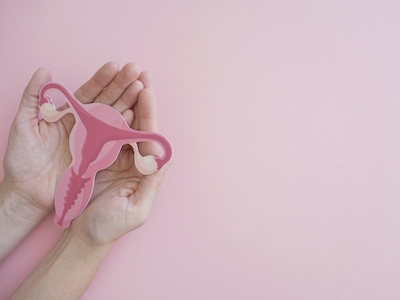
Sarah Melia, General Manager at Bupa Health Services
The conversation around women’s health in the workplace has moved on a huge amount in recent years with more organisations being aware of the impact that menopause has on their female workforce.
However, while attitudes towards menopause have changed, more than a million women still keep period-related sick days a secret each year because they feel unable to tell their boss the true reason for their absence.
This new research, from the Bupa Wellbeing Index, shows that one in eight women have taken time off work in the last 12 months due to symptoms linked to periods, with a third (35%) giving a different reason when needing to take time away.
Two in five women say they push through their pain despite experiencing severe period symptoms. And even when women do take time off work due to their period related symptoms, many still find it difficult to have open conversations about it. These figures suggest a lack of progress in terms of addressing the stigma around periods.
Almost half (47%) of women who have periods experience severe period pain most months. Yet, sadly, similar numbers (45%) of women don’t feel a period is a valid enough reason to call in sick and around a third feel embarrassed (34%) to talk about their period with a manager or are concerned that their employer won’t understand (31%).
These figures suggest a lack of progress in terms of addressing the stigma around periods, and this seems to be partly due to a culture of silence continuing in workplaces – as 38% of women reveal that periods aren’t talked about at all where they work and a third (32%) feel they can’t openly discuss their periods while at work. Even in companies where period health is discussed, outdated views continue, with a quarter (23%) of women saying that the subject is often raised in a negative light.
Women need companies to foster a workplace culture where they feel comfortable speaking openly and honestly about what they are experiencing. If companies are unable to do this, then productivity will slip, and they’ll lose the ability to attract and retain key talent. Women make up 48% of the UK workforce and it’s essential we support them to thrive.
Education, flexible working and access to healthcare services are three ways companies can help women in their workplace manage heavy and painful periods, reducing sick days and retaining employees.
Below, I share my advice on breaking down the taboo around periods in the workplace and making sure all women have access to the support they need:
- Educate
Education around periods is vital to supporting colleagues. It’s so important that we’re educating everyone, not just those experiencing it.
A great way to create an open culture is through internal campaigns, whether this is hosting external speakers, virtually or in person, or sharing personal stories from other people within the business.
It’s about creating a culture which normalises conversations about periods, where everyone feels comfortable to talk about what they’re experiencing and asks for support when they need it. To give one real world example, Bupa offers a monthly support group set up for people who suffer with heavy and painful periods.
- Provide access to menstrual products
This includes pads, tampons, and other menstrual products. It is important to make these products available in a variety of locations, such as bathrooms, break rooms, and vending machines.
- Offer flexible working arrangements
If your workplace doesn’t already have one and it is possible for you to introduce one, a flexible working policy is an effective step to support period health. To give an example, it means that if a colleague has struggled to sleep due to night sweats, they can start work slightly later.
Even where roles can be done remotely, hybrid working patterns may also mean they feel pressured to come into the workplace but make sure they know that if they’re struggling with symptoms they can work at home.
Flexibility is key when it comes to supporting employees with periods if they do not want to take time off.
- Offer support
Workplaces are doing more to support women’s health, and as more companies step up to that challenge, it’s essential that as well as offering flexible working hours and period products, they are providing access to services which can support with all of the symptoms.
This could be private GP services, such as the Bupa Period Plan which is easy to access and offers 45-minutes with a GP, nurse-led phonelines to offer 24/7 support or employee assistance programmes (EAPs) to help with the mental health symptoms. Having support and access to treatment means that employees are able to stay well, in work and improve productivity. They are also less likely to leave an organisation if they feel it cares about their wellbeing.
I’m delighted that we’ve launched our Period Plan to all our Bupa colleagues for free, meaning they can access support as and when they need it.
About the author
 Sarah Melia, General Manager, Health Services
Sarah Melia, General Manager, Health Services
Sarah was appointed General Manager of Bupa Health Services in 2021, overseeing Bupa Health Clinics and Cromwell Hospital. She previously held the role of Managing Director of Bupa Health Clinics since 2018.
Sarah commenced working at Bupa in 2011 starting out as a Regional Director in the Care Homes business before becoming Regional Managing Director, a position that she held for three years.
Before working at Bupa, Sarah held several senior commercial and operational roles within the retail travel industry, including Operations Director for a national travel business responsible for leading over 500 high street travel agents and supporting services across the UK.








